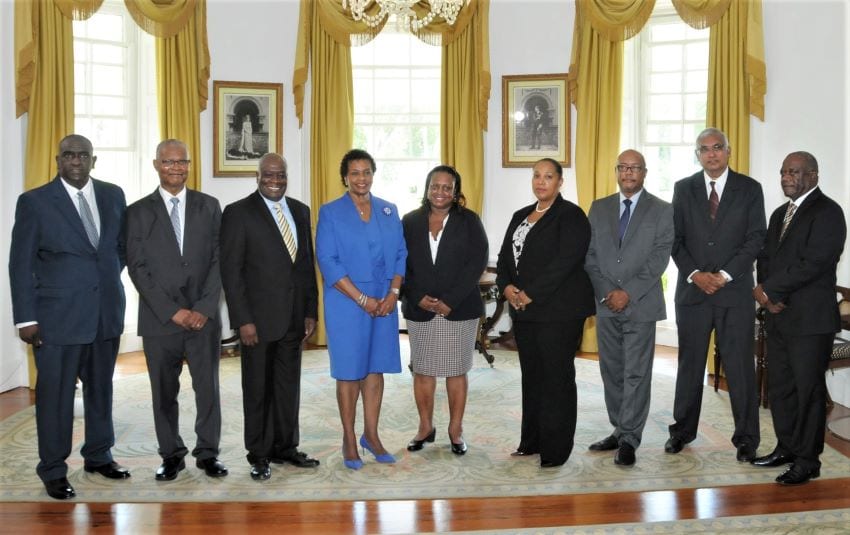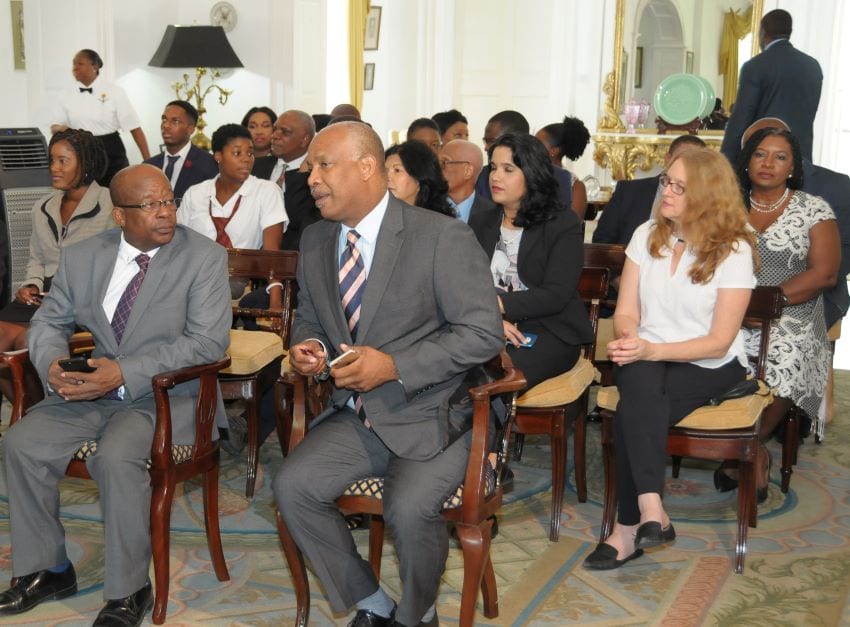
Seven new judges – one Court of Appeal judge, four High Court judges and two temporary High Court judges – were welcomed to the judiciary by Governor General Dame Sandra Mason after taking the Oath of Office at Government House on Monday.
Justice of Appeal Rejendra Narine; Justices of the High Court, Christopher Birch, Cecil McCarthy, Cicely Chase, and Barry Carrington; and temporary Judges of the High Court, Laurie-Ann Smith-Bovell and Carlisle Greaves, each took the oath as they prepare to take up their new appointments.
They were witnessed by Acting Prime Minister, George Payne; Attorney General, Dale Marshall; Chief Justice of Barbados, Sir Marston Gibson, family and friends.
Dame Sandra welcomed the new members of the judiciary, and reminded them that “to whom much is given, much is expected”.
Meanwhile, the Attorney General described the event as an important one in the delivery of justice in Barbados.
“We have held fast to our commitment to increase the size of the judiciary in Barbados, so as to be able to see an improvement in the movement of cases through our judicial system,” he said, adding that from that day, five criminal courts would sit at all times.
Mr. Marshall said he remained optimistic that the five criminal court judges and the “skillful management” of the system would allow for a faster movement of the criminal trials.
“The temporary judges are going to play a tremendous role in eliminating the backlog of criminal cases,” he added.
Mr. Marshall pointed out that the biggest challenge being faced was the rate at which cases passed through the judicial system which presently had over 1,000 criminal trials awaiting adjudication.

The Attorney General also noted that government was also concerned about the 70 murder trials, the oldest of which dates back to 2007, presently awaiting hearing.
“These murder trials that are awaiting hearing are already ready for trial, but they have not been able to get done because we didn’t have the number of judges, prosecutors, the number of court rooms available to do this work,” Mr. Marshall admitted.
However, he said Government was moving into an era where the response of the courts would match the response of the police and other law enforcement agencies.
To counter this challenge, Mr. Marshall pointed out that Government had agreed to increase the number of prosecutors and better manage existing resources.
He also expressed the view that Government was seeking to introduce new Criminal Procedure Rules which would bring predictability and enhance a judge’s ability to manage his or her criminal portfolio.
“I am hopeful that soon all the complaints will be a thing of the past,” the Attorney General said.
Meanwhile, newly appointed temporary High Court Judge, Justice Laurie-Ann Smith-Bovell said: “I hope to work with my fellow judges to improve the system of justice and make a serious dent in the backlog and find ways of not going back into a backlog and being current in all our cases.”
Justice Barry Carrington described his appointment as a humbling experience, and gave the undertaking that he was up to the challenge of dealing with the workload of the High Court.
Three additional High Court judges are expected to take up office in January and will be sworn in at a later date.
